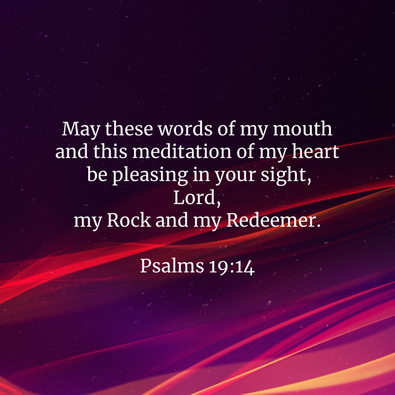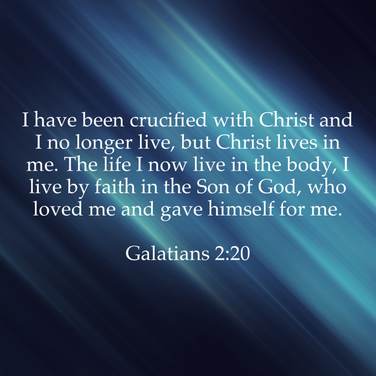|
Good morning!
We're so glad you decided to join us today!
When we meet in person, we share our joys and concerns with each other. Take some time to think about the past week. If you have prayer requests to share, you can add them to the comments on this post. When you are ready, use this prayer to get started.
Heavenly Father, we sometimes feel so small and weak in the face of life’s difficulties. We feel so unequipped to solve the problems that divide us. We feel so powerless to make a difference in our community and our world. In this moment, we offer what little we have, and we trust you to work out solutions in ways we would never have seen or imagined. Take our needs, our hopes, and our fears, and in their place give us your presence and your comfort. For we ask it in Christ’s name. Amen.
Today's lesson is on Exodus 2:1-10.
Introduction
God can use anyone who is willing to serve God. However, God mostly uses the weak and seemingly powerless, and God often rejects the powerful and seemingly wise. Maybe that is because the weak and powerless understand that they rely on God for everything they have, even their day-to-day lives and their very survival. A case in point is found in today’s Sunday school lesson. The story is about the birth of Moses, but it actually begins hundreds of years earlier, when God promised Abraham that his descendants would be as numerous as the stars in the sky and that they would one day possess a particular land. Many years later, one of Abraham’s descendants ended up in Egypt, where he rose from a prisoner to second in command to pharaoh. Because he was wise and had gifts that allowed him to guide Egypt through a devastating famine, he and his countrymen found favor in Egypt. They lived there as special guests for more than 400 years. During this time, however, another pharaoh came to power. He didn’t care about what Joseph or the Hebrews had done for the people. He only saw that the people were strong and fertile. He didn’t trust them because they were outsiders, foreigners and they worshipped another God. No one is sure who this pharaoh was, but it really doesn’t matter. As Walter Brueggemann, famed Old Testament scholar and theologian, has said, “If you’ve seen one pharaoh, you’ve seen them all.” In other words, the man of power in our lesson for today is not the mighty pharaoh. Such men come and go. Instead, it’s a little baby who was entrusted to God by a group of faithful women. It is the one who would grow up to be Moses and who would lead his people out of Egypt and to the brink of the land that God had promised those many years ago.
Unique response (Exodus 2:1-4)
The story begins with a Hebrew family, a husband and wife from the tribe of Levi, and the birth of their son. Under normal circumstances this would only be a happy event, but Moses was born with the shadow of death over him. By this time, Pharaoh had become so paranoid about the Hebrews that he had decreed that the midwives should kill every male child at their birth. Moses already had a sister and a brother, but girls were not subject to the decree and apparently his brother Aaron was born before the decree was in effect. For three months his mother somehow kept the birth a secret. But eventually she found it impossible to hide him. She built a papyrus basket — literally, an ark — and sealed it so that it would be watertight. Then she floated it down the Nile and laid it against the reeds, where it would be somewhat hidden and protected. His sister Miriam followed the basket to keep watch and to witness what happened. Perhaps she knew that this part of the Nile was the place where some of pharaoh’s many wives and children bathed, and she hoped that this might provide a glimmer of hope for Moses’ survival. The scripture does not tell us.
Unexpected rescue (Exodus 2:5-10)
At the same time, one of pharaoh’s daughters did arrive at the banks of the Nile. One of her attendants was walking along the riverbank when pharaoh’s daughter saw the basket floating in the reeds. She sent a slave to fetch the basket, and when it was opened, the women saw the baby inside and felt sorry for him. They knew it was a Hebrew baby. It seems that the daughter chose compassion over obedience to her father. Even though she recognized it was a Hebrew baby and knew full well of her father’s decree. she chose to help him and to raise him in her household. Apparently Miriam was observing this scene. Sensing her opportunity, she spoke to the daughter and asked if she, being a Hebrew herself, should get one of the Hebrew women to nurse the baby for her. The Sunday school lesson author questions why pharaoh’s daughter would have agreed to have a Hebrew woman nurse the child when undoubtedly many Egyptian nurses would have been available. Of course, because she had not been pregnant, the daughter could not have nursed Moses herself. However, I have a couple of ideas about why a Hebrew nurse might have been preferred. First, even though she did not want to baby to be killed, she still may have thought it to be beneath an Egyptian woman to nurse Hebrew baby. Prejudice comes in different degrees among different people, and although the daughter may have more compassion than her father, she still may have some sympathy with his thoughts about the Hebrews as a people. Second, if an Egyptian nurse or nurses were charged with caring for the child, eventually they might reveal the fact that pharaoh’s daughter was raising a child in violation of his decree. That could be fatal for the baby and the daughter. A Hebrew slave would not intentionally reveal Moses’ ethnicity. For whatever reason, the daughter believes Miriam’s suggestion is a good idea. She tells her to go and get one of the Hebrew women. Maybe she thinks she will get any Hebrew woman who has recently lost a son by pharaoh’s decree, but Miriam gets Moses’ actual mother. Despite the decree, Moses’ mother is allowed to care for her own son and to do it in pharaoh’s own household! And on top of that, pharaoh will pay her for doing it. Because of her faith, God preserved her son and, through him, would rescue his people. At some point, when Moses is old enough, his mother gives him to pharaoh’s daughter, who adopts him. This will give Moses the education and understanding he will one day need to execute the mission God will give him as an adult. At this point, the daughter gives him the name Moses. According to the Sunday school lesson, this name sounds much like the Egyptian word for “son,” but the scripture also says she gave him that name because she drew him out of the water and Moses also sounds like the Hebrew word for “to draw out.” The name also has meaning for Moses’ future mission. He will lead his people out of slavery.
Conclusion
The story surrounding Moses’ birth and upbringing triggers more questions than answers. One of the biggest unknowns concerns the motives of the pharaoh’s daughter and her desire to help. Scripture does not indicate whether she feared God or not. Despite her connection to the governing power, she was not overcome by its brutal demands. She was a beneficiary of the same system that allowed the pharaoh to act oppressively. But she managed to defy her upbringing and provided a just response to an unjust situation. However, the real heroines of this story are the child’s mother and sister. They took great risks to protect Moses. They trusted that God would see their response to the injustice and provide a way out. Their bold actions gave way to the gold actions of the daughter of Egyptian royalty. God provides justice where injustice reigns. God invites God’s people to reflect God’s character by taking bold (and sometimes risky) steps to protect and are for vulnerable individuals. The justice that God requires of his people is not hypothetical. It is active and embodied.
Prayer
God of justice, we ask that you strengthen our compassion to respond to the vulnerable members of our community. Show us how we might be instruments of your justice and people to those who experience injustice. In the name of Jesus. Amen.
Question: What apparent need in your community fills you with a sense of compassion to respond? What is one action step that you can take to help address this need?
Question: What needs do you see in your community this morning that are too difficult for you to tackle alone? Who will you recruit to assist you in meeting those needs?
Benediction
Today's benediction is from the New International Version.
Next week's lesson will be on Deuteronomy 32:3-6, 10-14, 18.
0 Comments
Leave a Reply. |
AuthorWe are a small, rural Presbyterian church in southwestern Pennsylvania. Archives
July 2024
Categories
All
|



 RSS Feed
RSS Feed